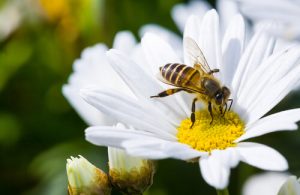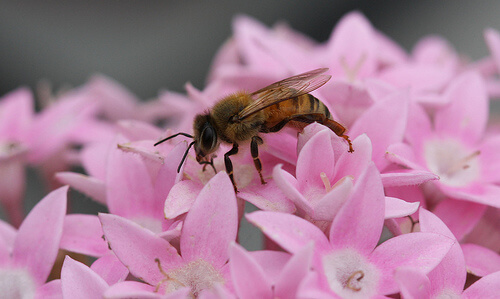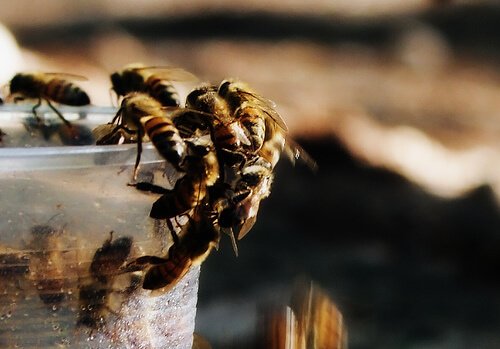Without Bees, There Would Be No Life On Earth

Without bees, There Would Be No Life On Earth
Most people don’t realize how important some animals are for our survival. Although you may not believe it, life would be nearly impossible without bees. This small insect, that a lot of people are often afraid of, plays an important role in ecology. Therefore, read this article to learn more about this extremely important insect.
A Bee’s Mission
There are thousands of species of animals in the world, both small and large, that have totally different habits. However, the one that keeps life going on earth is the bee. Yes, you read that correctly. This yellow and black insect travels tirelessly from flower to flower and is responsible for pollinating flowers and plants, and producing food for other living beings.
World biodiversity depends on bees due to a process that’s known as “symbiotic dependence.” Basically, this relationship starts with a bee using pollen and nectar to feed and produce honey. During this process, they also transfer pollen from one plant to another.
The process of cross-pollination between plants absolutely needs a body responsible for transferring their genetic information that will be used to produce seeds. Bees not only help wild flora grow but also almost half of the fruits and vegetables that everyone eats on a daily basis.
So, without bees, agricultural activity could disappear and, consequently, kill millions of people and animals. Nature is very wise and so is the food chain: pollination creates plants, which are consumed by herbivores, which are eaten by carnivores. If the first part of the equation disappears, so will the rest.

Why are bees disappearing?
This insect’s population has dropped by 25% in the last 30 years. This is due to several different reasons, all of which are the result of man. To start, the practice of industrialized agriculture that uses herbicides and pesticides that are responsible for the loss of native flora and fauna habitats.
Second, pollution makes it difficult for bees to survive in different environments that are plagued by smog and heavy metals in the air. Climate change and increased rains, droughts and rising temperatures are also deadly for bees because they affect the quality and quantity of the nectar that bees collect.
As if that weren’t enough, some countries are trying to make robot bees to pollinate plants because they seem to be more efficient than real ones (as if flying 800 kilometers throughout their lives isn’t effective).
Not to mention the fact that many people fear being stung. As soon as someone sees a bee flying nearby, they kill it with insecticide or hitting it with some object. This is very tragic because bees don’t attack unless they feel threatened.
So, just because they are close to you, doesn’t mean they will sting you. The reason why they most likely won’t is that if they do, they would die. This defense mechanism is only for extreme cases when the hive is in danger.

How to keep bees from disappearing?
After learning that without the existence of bees, life on Earth would be impossible, you can take action by following the steps below.
- Have a colorful garden at home that’s full of plants. This will attract bees and they will pollinate your plants. (Don’t worry, they won’t sting you if you’re around).
- Eat local, organic and seasonal products to reduce agricultural farming that uses pesticides. This is also a healthy option for you too.
- Buy honey and its byproducts — such as royal jelly, cosmetics, pollen, propolis –from organic producers/
- Don’t kill bees when they’re near you; just let them fly around without disturbing them.
If the biodiversity of plants and pollinators disappear, human civilization as we know it would have little time left. The number of living beings would be drastically reduced and those who survive wouldn’t have natural foods to eat. Instead, mankind’s food would be prepared in a factory or laboratory. Therefore, you could say that without bees, there would be no life on Earth.
This text is provided for informational purposes only and does not replace consultation with a professional. If in doubt, consult your specialist.